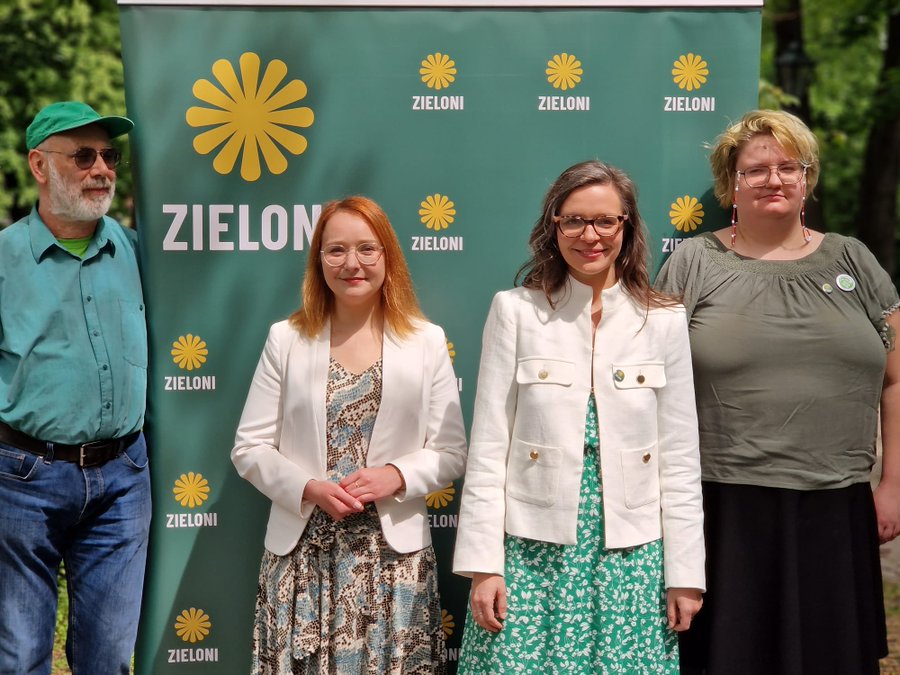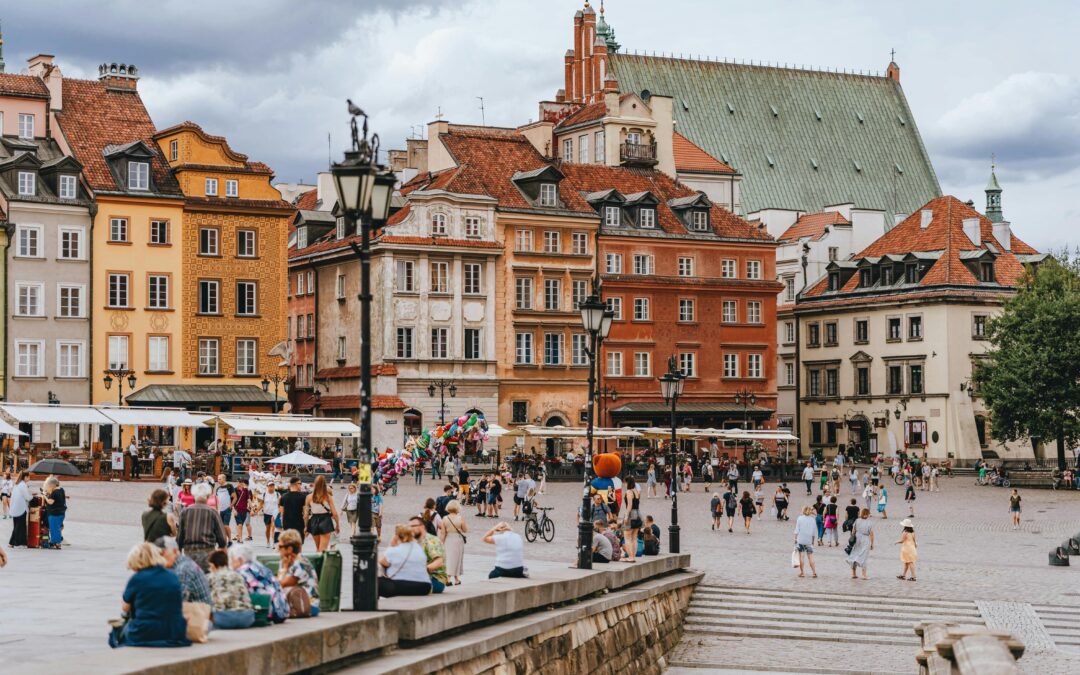The Greens (Zieloni), who are part of Poland’s largest opposition grouping, have raised concern over the proposed construction of a nuclear small modular reactor (SMR) in Kraków.
They argue that the technology, which is still in development, is not sufficiently tested and produces large amounts of nuclear waste. They have called for investment in renewables instead.
Two US government agencies have signed letters of intent to provide $4bn in financing for nuclear small modular reactors in Poland.
They will help "protect from Russian influence, meet climate commitments and drive economic development", says @USAmbPoland https://t.co/ASRwvX3mE8
— Notes from Poland 🇵🇱 (@notesfrompoland) April 17, 2023
Last month, state energy firm Orlen announced that it would by the end of this year announce 20 potential locations for the SMRs that it is developing in partnership with a group of American and Canadian corporations and with financing from US government agencies.
Of the seven potential sites unveiled already, one is in the Nowa Huta district of Kraków. Yesterday, two Green MPs, Małgorzata Tracz and Klaudia Jachira, organised a protest against those plans, saying that “no one has asked residents of Kraków for their opinion”.
Jachira noted that SMRs are still an experimental technology and “there is no evidence whether they work and what the risks are”, reports Gazeta Krakowska. Tracz cited research from Stanford University indicating that SMRs produce up to nine times more radioactive waste per unit of energy than large reactors.
📢 Dajmy głos mieszkańcom i mieszkankom Krakowa w sprawie małego reaktora jądrowego w Nowej Hucie!
📺 Mieszkanki i mieszkańcy Krakowa dowiedzieli się z telewizji, że Obajtek chce obok nich zbudować mały reaktor jądrowy. Niestety nikt się ich nie zapytał o zdanie w tej sprawie. pic.twitter.com/tycQlygpQl— Małgorzata Tracz (@GoTracz) May 16, 2023
The pair called for Orlen to provide more information on the costs and benefits of SMRs, to explain how waste will be managed, and to hold consultations with residents.
In response, Orlen Synthos Green Energy, which is responsible for developing the SMRs, noted that. while Nowa Huta is among the preferred locations. no final decision has been made.
“Following studies and consultations with local authorities, [we] will spend two years studying in detail the possibility of building a small nuclear unit in Nowa Huta,” said the firm. “Once the potential is confirmed, priority will be given to inviting local communities to dialogue. Only on this basis will decisions be taken.”
A group of US, Canadian and Polish corporations have signed an agreement in Washington to invest $400 million in jointly developing small modular nuclear reactors, some of which will be built in Poland by state energy firm Orlen https://t.co/rx8Yc59vBV
— Notes from Poland 🇵🇱 (@notesfrompoland) March 24, 2023
Speaking to Gazeta Krakowska, the firm’s Dawid Piekarz said that “nuclear fuel and other waste will be safely stored in special facilities, prepared in accordance with international standards”.
Poland’s government has made nuclear, which directly produces no carbon emissions, a central plank of the transition away from coal, which currently accounts for 70% of the country’s energy mix, by far the highest proportion in Europe. The country currently has no nuclear power stations at all.
However, Jachira argues that “nuclear is not a green energy source” and that “a cheaper and safer alternative is renewables”. The Greens – who are part of Civic Coalition (KO), the largest opposition group in parliament – call for investment in wind, solar and biomass as alternatives to nuclear.
Poland’s climate ministry has outlined plans for the country to generate three quarters of its electricity from zero-emissions sources by 2040, with 51% coming from renewables and almost 23% from nuclear https://t.co/CksVqGQXkV
— Notes from Poland 🇵🇱 (@notesfrompoland) April 4, 2023
Experts note, however, that the energy transition in Poland needs to involve both renewables and nuclear, with the latter required to both meet growing demand and stabilise supply.
Aleksander Śniegocki, head of the Reform Institute, a public policy think tank in Warsaw, told Notes from Poland last year that even though the renewables are indeed cheaper and faster to build than nuclear, there is no need for an “either-or” approach.
A poll in December showed that public support in Poland for developing nuclear power had almost doubled in the space of a year to reach 75% amid the energy crisis triggered by Russia’s war in Ukraine and the Polish government’s moves to develop the country’s first nuclear plants.
Support for nuclear energy in Poland has risen sharply to 75%, up from 39% last year.
The findings come amid the energy crisis triggered by Russia’s war in Ukraine and as the government moves forward with plans to build Poland's first nuclear power plants https://t.co/OvApCOtiA2
— Notes from Poland 🇵🇱 (@notesfrompoland) December 5, 2022
Main image credit: Małgorzata Tracz / Twitter

Alicja Ptak is deputy editor-in-chief of Notes from Poland and a multimedia journalist. She has written for Clean Energy Wire and The Times, and she hosts her own podcast, The Warsaw Wire, on Poland’s economy and energy sector. She previously worked for Reuters.




















